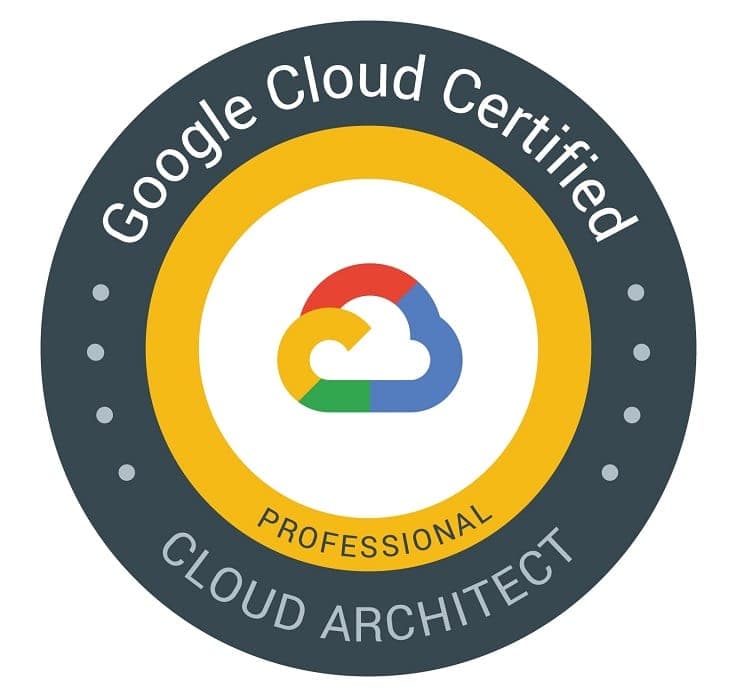Student Feedback
Google Analytics: Google Analytics Individual Qualification (IQ) Certification Video Training Course Outline
Introduction
How to Set Up Google Analytics C...
How to Navigate Google Analytics...
Student Questions Answered
Introduction
Google Analytics: Google Analytics Individual Qualification (IQ) Certification Video Training Course Info
Google Analytics Individual Qualification (GAIQ) – Learn & Get Certified
Google Analytics 4 (GA4) Individual Qualification Practice Test – Updated Exam Questions with Latest Syllabus
What you will learn from this course
• Develop a complete understanding of Google Analytics Individual Qualification (GAIQ) exam structure and topics
• Learn to configure and implement Google Analytics tracking codes across websites
• Gain skills in setting up goals, filters, events, and audience segments
• Interpret key performance metrics and analyze user behavior data effectively
• Create custom dashboards and reports that provide actionable insights
• Improve your ability to optimize marketing campaigns through data analysis
• Understand advanced concepts like custom dimensions, cohorts, and funnels
• Enhance your decision-making skills with data-driven strategies
• Build confidence in passing the Google Analytics Individual Qualification exam on the first attempt
• Strengthen digital marketing and web analytics knowledge to boost career opportunities
Learning Objectives
The main objective of this course is to prepare learners for the Google Analytics Individual Qualification certification by giving them the knowledge and practice needed to succeed in the exam. Learners will become familiar with the Google Analytics interface, its tools, and the practical application of analytics in a digital marketing environment. By the end of this course, students will be able to:
• Understand how to set up and configure Google Analytics for websites and apps
• Collect, process, and interpret web traffic and engagement data
• Build insights from user data to guide business and marketing decisions
• Troubleshoot common implementation issues and ensure accurate tracking
• Apply knowledge of reporting tools to monitor performance and conversions
• Demonstrate proficiency in both beginner and advanced analytics features
Target Audience
This course is suitable for a wide range of learners interested in digital marketing and analytics. It is designed for:
• Students and professionals who want to pass the Google Analytics Individual Qualification exam
• Beginners who want to understand the basics of web analytics and tracking
• Digital marketing specialists looking to validate their analytics expertise
• SEO and PPC professionals who want to analyze and optimize campaign results
• Business owners and entrepreneurs aiming to measure their online performance
• Marketing analysts who want to strengthen their skills in data-driven decision making
• Professionals looking to gain a competitive edge in the job market with a recognized certification
Requirements
To succeed in this course and perform well in the Google Analytics Individual Qualification exam, learners should meet some basic requirements:
• A stable internet connection and a device with access to the Google Analytics platform
• A willingness to learn and practice with analytics tools regularly
• Commitment to reviewing practice questions and applying concepts to real scenarios
• Basic knowledge of websites and how digital marketing works will be useful but not mandatory
• A Google account to access the Google Analytics platform and exam resources
Prerequisites
While no advanced background is necessary, a few prerequisites will help learners get the most from this course:
• Familiarity with basic digital marketing concepts such as campaigns, conversions, and user engagement
• Basic understanding of how websites function, including page views, sessions, and clicks
• Comfort with using online tools, dashboards, and reporting features
• Some experience with tracking website traffic through free tools or platforms will be an advantage
• Motivation to study, practice, and test analytics knowledge until mastery is achieved
Description
The Google Analytics Individual Qualification is an official certification from Google that evaluates an individual’s ability to use Google Analytics effectively. It tests knowledge across multiple areas, including data collection, configuration, measurement, and reporting. Passing this exam demonstrates strong digital analytics expertise and validates skills that are highly valued in the marketing and business sectors.
The certification exam is structured with multiple-choice questions and is designed to measure practical knowledge as well as theoretical understanding. Candidates need to complete 70 questions in 90 minutes and achieve a passing score of 80 percent or higher. The exam is free and available in multiple languages, making it accessible to learners worldwide. If unsuccessful, candidates can retake the exam after seven days.
This qualification is not only about passing an exam but about truly understanding the platform. Google Analytics has become one of the most important tools in digital marketing, providing businesses with the ability to track, analyze, and optimize their online presence. With this certification, professionals can prove their skills in turning raw data into meaningful business insights.
Importance of Google Analytics in Digital Marketing
Digital marketing relies heavily on accurate data collection and interpretation. Without clear data, businesses cannot evaluate performance or make informed decisions. Google Analytics allows marketers to measure traffic sources, track conversions, monitor engagement, and identify opportunities for improvement.
By mastering Google Analytics, professionals gain the ability to create strategies that are backed by data rather than assumptions. They can identify which campaigns are successful, which areas of a website need optimization, and how users interact with content. This makes the platform essential for roles like marketing analyst, SEO specialist, PPC manager, and digital strategist.
The Google Analytics Individual Qualification confirms that a professional has this expertise. Employers recognize the certification as proof that the individual is capable of using analytics to drive growth and optimize performance. This not only enhances career opportunities but also builds confidence in delivering results for businesses and clients.
Skills Developed Through the Practice Exam
Preparing for the Google Analytics Individual Qualification involves developing a wide range of skills that extend beyond the exam itself. Learners gain the ability to navigate the platform, customize reports, and create dashboards that provide insights into website performance. They also strengthen their understanding of technical aspects like setting up tracking codes, goals, events, and conversions.
Through consistent practice, learners develop critical thinking skills needed to interpret complex data. They learn how to identify patterns, spot anomalies, and use analytics features such as audience segmentation and funnel analysis. This builds problem-solving abilities and prepares professionals to apply analytics knowledge in real-world business scenarios.
Career Benefits of the Certification
Achieving the Google Analytics Individual Qualification opens doors to a variety of career paths in digital marketing and analytics. Certified professionals are able to demonstrate their skills to employers and clients, making them stand out in competitive markets.
Career opportunities include roles such as digital marketing specialist, SEO analyst, PPC campaign manager, data analyst, and web performance consultant. The certification also benefits entrepreneurs who want to measure and grow their online presence. With analytics skills, they can make informed decisions about investments in advertising, content, and customer engagement strategies.
The certification is recognized globally, making it a valuable addition for professionals aiming to work in international markets. It serves as a trusted credential that validates both theoretical and practical knowledge of web analytics.
Course Modules / Sections
This course is divided into carefully designed modules to ensure learners gain both theoretical knowledge and practical expertise in Google Analytics Individual Qualification. Each section builds on core principles of digital analytics and gradually introduces advanced concepts to help learners master every area covered in the exam. The modules are structured as follows:
Module 1: Introduction to Google Analytics Individual Qualification Certification – This module provides an overview of the exam, its purpose, requirements, and the benefits of obtaining certification. Learners will understand the scope of the exam and the knowledge areas it covers.
Module 2: Google Analytics Platform Overview – This module introduces the interface of Google Analytics, its navigation, account setup, property configuration, and reporting features. Learners will explore how to create accounts, manage users, and configure settings.
Module 3: Data Collection and Processing – This module explains how Google Analytics gathers information from websites through tracking codes, cookies, and scripts. Learners will study how data is collected, processed, and stored before being displayed in reports.
Module 4: Reports and Metrics – This section covers the different types of reports available in Google Analytics, including audience, acquisition, behavior, and conversion reports. Learners will understand key metrics and dimensions.
Module 5: Goals, Events, and Conversions – Learners will discover how to configure goals, track user actions through events, and measure conversions to evaluate marketing success.
Module 6: Segments, Filters, and Audiences – This module introduces advanced reporting tools that allow users to segment data, apply filters, and create target audiences for analysis.
Module 7: Custom Dimensions, Metrics, and Cohort Analysis – Learners will explore how to set up custom tracking parameters, use cohort analysis, and measure unique interactions.
Module 8: Dashboards, Shortcuts, and Custom Reports – This module demonstrates how to build dashboards, save shortcuts, and design custom reports to suit specific business needs.
Module 9: Attribution Models and Funnel Analysis – This section explains how Google Analytics evaluates the contribution of different channels to conversions and how funnels help visualize user journeys.
Module 10: Troubleshooting and Common Issues – Learners will study common errors in tracking setup, data discrepancies, and steps to resolve technical problems.
Module 11: Exam Preparation and Practice Tests – This final module guides learners through strategies for exam success, with sample practice questions and simulated tests.
Key Topics Covered
The course ensures coverage of all critical areas required to succeed in the Google Analytics Individual Qualification certification. The key topics include:
Google Analytics setup and configuration – Learners will understand how to create accounts, set up properties, configure tracking codes, and manage views.
Data collection fundamentals – This includes knowledge of tracking implementation, cookies, user identifiers, and the flow of data through the system.
Metrics and dimensions – Learners will explore the difference between metrics and dimensions and how they are used in reports.
Audience reports – This section explains how to evaluate user demographics, interests, devices, and geographic locations.
Acquisition reports – Learners will gain insights into how users arrive at a website, including organic search, paid advertising, referral traffic, and direct visits.
Behavior reports – This topic covers how users interact with a website, including page views, session duration, bounce rate, and site speed.
Conversion reports – Learners will learn how to track conversions, set up goals, and measure business objectives.
Event tracking – This topic covers how to set up events to measure specific actions such as button clicks, video views, or file downloads.
Segmentation – Learners will understand how to break down data using segments to analyze specific groups of users.
Custom reports and dashboards – This section focuses on building tailored reports and dashboards to meet business requirements.
Attribution modeling – Learners will study how Google Analytics assigns credit to different channels and touchpoints in a user’s journey.
Cohort analysis – This topic covers analyzing groups of users over time to understand patterns of engagement.
Troubleshooting – Learners will learn how to identify errors in implementation, verify data accuracy, and resolve common issues.
Exam strategy – This includes preparation tips, time management, and approaches to handling practice tests.
Teaching Methodology
The course uses a structured and practical teaching methodology to ensure learners gain maximum benefit from the content. The methodology is designed to balance theoretical knowledge with hands-on practice.
Conceptual learning – Each concept is explained clearly, with real-world examples of how Google Analytics is applied in digital marketing and business contexts. Learners are guided step by step to understand the purpose and function of each tool within the platform.
Hands-on practice – Learners are encouraged to apply knowledge directly within Google Analytics accounts by setting up goals, creating reports, and configuring events. This practical exposure helps in developing familiarity with the platform’s features.
Visual demonstrations – Explanations of reports, dashboards, and configurations are supported with illustrations and guided walkthroughs to show how tasks are performed.
Scenario-based exercises – The course integrates exercises that simulate real business challenges, requiring learners to analyze data, interpret results, and make recommendations. This builds analytical and problem-solving skills.
Reinforcement through repetition – Core concepts such as tracking setup, reporting, and segmentation are revisited multiple times in different contexts to ensure mastery.
Progressive learning structure – The course begins with foundational concepts and gradually moves to advanced topics, ensuring that learners build knowledge in a logical sequence.
Practice assessments – At regular intervals, learners attempt practice questions that reflect the format and difficulty level of the actual certification exam. These assessments help identify strengths and areas for improvement.
Feedback and self-evaluation – Learners are encouraged to reflect on their performance in exercises and assessments, which supports continuous improvement.
Assessment & Evaluation
Assessment and evaluation are integral components of this course. They ensure that learners are not only absorbing information but are also able to apply it effectively in real scenarios and in preparation for the certification exam.
Formative assessments – Throughout the course, learners will encounter practice quizzes and knowledge checks that reinforce concepts covered in each module. These are designed to measure understanding before moving to more advanced sections.
Practice exams – Full-length simulated exams are included to provide learners with a real exam experience. These practice tests mirror the actual exam format, number of questions, time constraints, and difficulty level.
Performance analysis – After completing practice exams, learners will receive feedback that highlights their performance in specific domains. This helps them identify weak areas and focus their study efforts accordingly.
Scenario-based evaluations – Learners will be presented with case studies and real-world examples where they must analyze data and present insights. This ensures practical application of knowledge and develops decision-making abilities.
Progress tracking – The course includes mechanisms to track progress over time. Learners can monitor improvement through repeated attempts at quizzes and practice tests.
Final assessment – At the conclusion of the course, a comprehensive test will evaluate overall readiness for the Google Analytics Individual Qualification certification. Achieving a strong score in this assessment gives learners the confidence to attempt the official exam.
Evaluation criteria – Performance is evaluated on the ability to interpret data, configure settings, create reports, and apply knowledge in practical contexts. Accuracy, problem-solving ability, and time management are considered key evaluation criteria.
The assessment and evaluation process not only prepares learners for the certification exam but also ensures that they gain practical skills useful in professional settings. By the end of the course, learners will have tested their abilities in various contexts and will be equipped with both confidence and competence to achieve the Google Analytics Individual Qualification.
Benefits of the Course
The Google Analytics Individual Qualification (GAIQ) course provides numerous benefits for professionals, students, and business owners seeking to enhance their skills in digital analytics. One of the key advantages is the ability to gain recognized certification from Google, which validates the learner’s proficiency in Google Analytics and strengthens credibility in the digital marketing and analytics field. Certified professionals are often viewed as more competent and reliable when it comes to analyzing data, measuring performance, and making data-driven decisions.
The course empowers learners to interpret website traffic, understand user behavior, and optimize marketing campaigns effectively. By learning to configure goals, set up event tracking, and use custom dimensions and metrics, individuals can uncover valuable insights that improve the performance of websites and online campaigns. Professionals who complete this course will have a strong foundation in monitoring and evaluating website performance, enabling them to make informed recommendations for business growth.
Another significant benefit is enhanced career opportunities. Digital marketing, SEO, PPC, content strategy, and web analytics roles often require proficiency in Google Analytics. Completing this course provides the knowledge and skills necessary to qualify for such positions, giving learners an advantage over others who may lack formal certification. The ability to provide quantifiable results through data analysis increases employability and opens doors to career advancement.
The course also helps learners develop a strategic mindset. By understanding how data reflects customer behavior, individuals can plan and implement targeted campaigns that maximize engagement and conversions. This skill is highly valuable for businesses of all sizes, as it directly contributes to achieving marketing objectives and optimizing return on investment. Additionally, learners gain confidence in presenting insights to stakeholders and using analytics to support business decisions.
For business owners and entrepreneurs, the course provides tools to monitor website performance, evaluate campaign effectiveness, and make data-driven adjustments. This reduces guesswork in marketing strategies and enables more efficient allocation of resources. The practical skills acquired through the course also allow learners to identify trends, detect issues early, and implement solutions quickly.
Beyond technical knowledge, the course develops analytical thinking and problem-solving abilities. Learners practice interpreting complex datasets, identifying patterns, and deriving actionable insights. These skills are transferable to other analytics tools and platforms, expanding professional versatility and enhancing the ability to contribute to a data-driven organizational culture.
Course Duration
The Google Analytics Individual Qualification course is designed to be comprehensive while accommodating learners with different schedules. On average, the course can be completed in approximately 20 to 25 hours of focused study, including time spent on practice exercises and assessments. Learners who dedicate consistent daily study time may complete the course in one to two weeks, while those with limited availability may progress over a longer period, ensuring flexibility for all types of learners.
The duration allows for in-depth exploration of both basic and advanced concepts in Google Analytics. Foundational modules cover essential topics such as account setup, data collection, and reporting, while more advanced modules delve into segments, cohorts, attribution models, and custom metrics. This structure ensures that learners develop a complete understanding of the platform and are prepared for the certification exam.
The course duration also provides ample time for hands-on practice. Learners are encouraged to apply concepts directly within Google Analytics accounts, configure tracking codes, create custom reports, and analyze real or simulated datasets. This practical exposure is crucial for mastering the platform and developing the confidence needed to pass the certification exam.
In addition to structured learning modules, the course includes practice assessments and full-length simulated exams. These exercises are spaced throughout the course, allowing learners to reinforce knowledge, track progress, and identify areas for improvement. The combination of instructional content, exercises, and assessments ensures that learners are fully prepared for both the exam and practical applications in professional environments.
Tools & Resources Required
To maximize the benefits of this course, learners need access to a few essential tools and resources. First and foremost, a Google account is required to access the Google Analytics platform. This allows learners to create accounts, configure properties, set up tracking, and explore the platform’s reporting features. Access to a live website, test website, or demo account is also beneficial for practical exercises, enabling learners to apply concepts in real-world scenarios.
A stable internet connection and a computer or laptop with modern web browsers are essential to access the course materials, tutorials, anthe d Google Analytics platform. Using updated browsers ensures compatibility with all features and reduces the risk of technical issues while navigating the platform or taking practice assessments.
Learners should also have access to digital marketing resources, such as online tutorials, official Google Analytics documentation, and help center articles. These resources provide additional explanations, examples, and guidance for configuring advanced tracking setups, creating custom reports, and troubleshooting issues.
Spreadsheet tools, such as Microsoft Excel or Google Sheets, are highly recommended. These tools allow learners to export data from Google Analytics and perform detailed analyses, practice reporting, and create custom visualizations. Spreadsheet skills complement Google Analytics expertise and enhance the ability to present data in a clear and actionable manner.
The course also encourages the use of online communities, forums, and discussion groups. Engaging with other learners and professionals in the field allows for the exchange of tips, troubleshooting strategies, and best practices. Networking with peers can also provide insights into how Google Analytics is applied in different industries and business contexts.
Finally, learners are advised to utilize practice exams and mock tests. These resources simulate the official certification exam, helping learners familiarize themselves with question formats, timing, and difficulty levels. Repeated exposure to practice tests ensures learners can confidently approach the real exam, identify weak areas, and improve performance.
By combining access to Google Analytics, reliable technology, supplementary learning resources, and practice assessments, learners are fully equipped to achieve mastery in digital analytics and succeed in the Google Analytics Individual Qualification certification exam.
This combination of benefits, structured course duration, and essential tools ensures that learners gain both theoretical knowledge and practical expertise. Completing this course prepares learners not only for certification but also for professional application of Google Analytics in real-world digital marketing and business analytics scenarios.
Career Opportunities
The Google Analytics Individual Qualification (GAIQ) certification opens up a wide range of career opportunities for professionals in digital marketing, data analytics, web development, and business strategy. Individuals who complete this course and achieve certification demonstrate expertise in web analytics, making them highly attractive to employers and clients. This certification provides the skills necessary to interpret complex datasets, optimize website performance, and create actionable insights from user behavior data.
One of the primary career paths for certified individuals is digital marketing. Professionals in this field can leverage their Google Analytics skills to monitor campaigns, evaluate the performance of advertising channels, and implement data-driven strategies. With a solid understanding of traffic sources, conversion metrics, and audience behavior, digital marketers can maximize the return on investment for campaigns and improve overall marketing effectiveness.
Search engine optimization (SEO) specialists also benefit from GAIQ certification. They can use Google Analytics to track organic search performance, measure keyword impact, and analyze user engagement. By understanding how visitors interact with websites, SEO professionals can implement targeted strategies that improve rankings, enhance user experience, and drive higher levels of traffic and engagement.
Pay-per-click (PPC) campaign managers can use Google Analytics to monitor ad performance, analyze conversion rates, and optimize campaigns based on data insights. Knowledge of analytics allows PPC professionals to allocate budgets effectively, identify high-performing ads, and adjust targeting strategies to achieve better results. Certified individuals have the skills to make informed decisions that improve campaign outcomes and increase overall efficiency.
Data analysts and business intelligence professionals can also benefit from this certification. Google Analytics provides extensive data that can be used for reporting, trend analysis, and forecasting. Certified individuals can transform raw data into actionable insights, helping organizations make informed decisions about product offerings, marketing strategies, and operational improvements. This skill set is highly valued in industries such as e-commerce, technology, and consulting.
Web developers and UX designers can leverage Google Analytics data to enhance user experience and website functionality. By analyzing user flow, bounce rates, and engagement metrics, professionals can identify areas for improvement and implement design or functionality changes that increase user satisfaction and conversion rates. Certified individuals bring a valuable perspective to cross-functional teams, combining technical skills with data-driven decision-making.
Entrepreneurs and business owners benefit from GAIQ certification by gaining the ability to monitor website performance and evaluate marketing efforts. This knowledge enables them to make informed decisions about campaign spending, content strategy, and customer engagement. Small business owners, in particular, can use insights from Google Analytics to improve website performance, increase sales, and grow their online presence.
The certification also supports freelance and consultancy opportunities. Professionals who are certified can offer analytics consulting services, helping clients understand their data, optimize campaigns, and achieve measurable results. The credibility provided by GAIQ certification allows freelancers to attract clients, charge competitive rates, and establish themselves as trusted experts in digital analytics.
In addition to specialized roles, GAIQ certification enhances overall employability in marketing, analytics, and business strategy positions. Employers value candidates who can interpret data accurately, provide insights, and support decision-making processes. Certified individuals are equipped to contribute to strategic planning, improve marketing effectiveness, and ensure data-driven practices are implemented across organizations.
The global recognition of the Google Analytics Individual Qualification also expands opportunities internationally. Professionals seeking roles in multinational organizations, digital marketing agencies, or international consulting firms benefit from the universally acknowledged value of the certification. The skills acquired through this course are applicable across industries and regions, making certified individuals versatile and competitive in the global job market.
By combining technical expertise, analytical skills, and practical application, certified individuals can pursue career paths that are both rewarding and dynamic. The ability to interpret web data, optimize marketing performance, and implement strategic improvements positions learners for success in roles that require both analytical rigor and business insight. The GAIQ certification empowers professionals to achieve long-term career growth and establish themselves as leaders in the field of digital analytics.
Conclusion
The Google Analytics Individual Qualification course is a comprehensive program designed to equip learners with the knowledge, skills, and confidence needed to succeed in web analytics and digital marketing. By completing this course, individuals gain a deep understanding of Google Analytics, including tracking implementation, reporting, audience segmentation, conversion measurement, and advanced features such as custom dimensions and cohorts. The course also emphasizes practical application, allowing learners to implement real-world analytics strategies and gain hands-on experience with the platform.
One of the key outcomes of the course is the ability to interpret and analyze data effectively. Learners develop critical thinking skills that enable them to identify patterns, measure performance, and provide actionable insights. These skills are essential for digital marketing, SEO, PPC, and business analytics roles, making the certification highly valuable in the professional market.
The course also fosters problem-solving capabilities and data-driven decision-making. By working through scenarios, practice exams, and real-world examples, learners gain confidence in their ability to apply analytics knowledge to solve business challenges. This practical expertise complements theoretical understanding, ensuring that learners are fully prepared for both the certification exam and professional applications.
Another important aspect of the course is its impact on career development. GAIQ certification validates expertise in Google Analytics, enhancing credibility with employers, clients, and peers. It provides a competitive edge in hiring processes and can lead to new job opportunities, promotions, or freelance consulting work. The globally recognized credential signals that an individual has mastered the skills necessary to analyze data, optimize marketing campaigns, and drive business growth.
The course’s structured modules, comprehensive coverage of key topics, and focus on hands-on practice ensure that learners are well-prepared for the exam. Practice tests, assessments, and scenario-based exercises reinforce knowledge and build confidence. Learners gain insight into their strengths and weaknesses, allowing them to focus study efforts where needed and achieve high performance on the certification exam.
Furthermore, the course provides flexibility for learners of all levels. Beginners gain foundational knowledge and skills, while experienced professionals can refine their expertise and stay current with the latest Google Analytics features and best practices. The accessibility of the course, combined with the free nature of the official certification exam, makes it a practical and achievable goal for anyone seeking to enhance their digital analytics capabilities.
By the conclusion of the course, learners not only achieve readiness for the GAIQ certification exam but also develop skills that are directly applicable to real-world scenarios. They can create reports, track user behavior, measure campaign success, and provide strategic recommendations based on data. These abilities are highly valued in the digital marketing and analytics sectors and contribute to both professional and personal growth.
The course also emphasizes the long-term benefits of mastering Google Analytics. Certified professionals can continuously apply analytics knowledge to optimize websites, improve user experience, and support business objectives. This ongoing application of skills ensures that learners remain relevant in an ever-evolving digital landscape and can adapt to new trends, tools, and industry requirements.
Overall, the Google Analytics Individual Qualification course offers a combination of theoretical knowledge, practical skills, career enhancement, and global recognition. It equips learners with the expertise needed to succeed in digital marketing, data analysis, and web performance evaluation. By completing this course and obtaining certification, individuals position themselves for success in competitive industries and gain the ability to drive meaningful business outcomes using analytics.
Enroll Today
Enrolling in the Google Analytics Individual Qualification course is the first step toward achieving mastery in digital analytics and gaining a globally recognized credential. The course provides structured learning, hands-on practice, and comprehensive coverage of all topics necessary for certification. Learners gain the knowledge and confidence needed to pass the exam and apply analytics skills professionally.
With flexible course modules, practice assessments, and real-world examples, students can study at their own pace and tailor their learning experience to meet individual needs. The combination of technical training, strategic insights, and practical application ensures that learners are fully prepared to succeed both in the exam and in their careers.
Enrolling in this course allows learners to enhance their digital marketing capabilities, improve website performance, and develop data-driven decision-making skills. It is suitable for beginners, experienced professionals, business owners, and anyone seeking to strengthen their expertise in Google Analytics.
Take the step today to invest in your career, gain valuable skills, and achieve Google Analytics Individual Qualification certification. By enrolling in this course, you are setting yourself on a path toward professional growth, enhanced credibility, and new opportunities in the field of digital analytics and online marketing.













